Southport Village Voices
An E-Magazine by & for the Residents of Southport
Number 77, July 2016
|
|
| |
At the corner of Grey Hawk & Twin Oaks Photo: D. Kapp
|
|
|
|
|
|
|
|
Hokule'a
The Hawaiian Mayflower
|
Cape Cod descendants of the Mayflower washashores are proud of their nearly 400 years of history. Today and tomorrow (July 1-2), they'll have an opportunity to learn about a similar event, when some Polynesians came ashore on the southern tip of the Big Island of Hawaii about 600 years earlier -- in an open, ocean-voyaging, double-hulled sailing canoe.
The Hokule'a ("Star of Gladness"), a 60' x 24' replica of such a canoe, was built in Hawaii in the mid-1970s as a science experiment to see if Tahitians could successfully have made the 3000 mile journey to Hawaii with only stars, ocean swells, birds and clouds to guide them. The first voyage of the Hokule'a, in 1975, proved that such a feat was indeed possible.
And perhaps more importantly, that accomplishment sparked a reawakening of native Hawaiian culture in the islands.The Hawaiian language, their myths and legends, traditional arts of chanting, drumming and dance, and other evidence of an indigenous culture suppressed by westerners, experienced a renaissance and now flourishes.
In 2013, the Hokule'a launched its current, multi-year, global-spanning voyage, "malama honua" (Care for our Earth). The boat will arrive at Dyer's Dock in Woods Hole on Friday morning, July 1, and will be greeted by members of the Wampanoag nation, who have their own connections to Hawaii, and others.
A documentary film about the Hokule'a will be shown in the Redfield Auditorium (45 Water Street) at noon and a limited number of visitors can board the boat from 1:00 - 3:00. On Saturday, July 2, the Hokule'a crew will participate in the opening grand procession, at the 95th annual Wampanoag Pow Wow.
 You can read about the origin of the Hokule'a and the inspiring achievement of its creators and crew in an excellent book by Sam Low, Hawaiki Rising.
|
|
 |
|
|
|
SOUTHPORT PROFILE
Pam Britnell:
A Journey Toward Meaningful Work
an interview with Lynn Fulton
|
 |
|  |
Pam Britnell
|
Southport is a remarkable community with many excellent attributes, including the opportunities we have to meet new and interesting people -- for example, Pam Britnell, whom I met at Ladies Coffee. Like many residents, Pam lives in two places at once, and I was intrigued to learn more, especially since her second home is Manhattan, where she is a college instructor. I wanted to get to know her better but she was about to return to the city for another semester. I reminded her of the 'profiles' in Southport Village Voices and she agreed to be interviewed for a summer issue. We found our chance to chat in mid- June.
Pam is mulling over her options for the next step of her life: Should she keep her Manhattan apartment with its costs and commitments -- but also with access to the lively culture of the city? Should she maintain her position at the college, which provides meaningful occupation and some of the funds to maintain her city life? Or, is it time to open the next chapter of her life and retire to Southport?
As a child, Pam came to the Cape to visit her grandparents, who had bought their cottage in Orleans during WWII. They told stories of blackout windows, the requirement to drive without headlights, and the fear of German submarines and potential invasion. Eventually Pam's mother retired from her career in education and moved to the cottage in Orleans. Pam continued to visit her mother (and brother in Barnstable), exploring other parts of the Cape along the way. During those rambles she visited Southport in its early days and thought what a great place to settle in when the time comes to retire.
Pam grew up in Framingham and by the time she was five, her mother was raising two children alone and teaching the "Chef's Program" (Home Ec) at Framingham High School. Pam was aware of the challenges in marriage and single parenthood and admired her mother, who provided her children with the tools for independence and expected them to have jobs as soon as possible. Pam went to work at Howard Johnson's on Rt. 9 in Framingham before she was 16 and stayed with the job for six years, paying her way through UMass Boston, where she majored in French.
|
|  | |
Pam (back row center) on a field trip to Alexander Hamilton's home, with some of her ESL students from the Bronx Community College.
|  |
Working with the public taught her some of life's most important lessons, particularly that a smile really pays off. She established friendly relationships with many of her customers (and was able to buy a Triumph TR4 at a manageable price from one of them). Another of her regulars heard of her desire to spend her senior year at the Sorbonne but lacked enough money to do so. He put her in contact with someone at the State House who found a loan for which she was eligible (it was her only college debt), and she spent her final year of college in Paris.
Life in a student hotel on Rue Gay Lussac was exciting and full of new adventures, some personal and some culinary. Her mother had warned her about the cheese, but neglected to say anything about the men. And of course there was travel, which was easy and inexpensive in the late 60s in Europe. She has returned to Europe many times since, but her favorite more recent trips were with Earthwatch for an archaeological dig in Tunisia (Berbers camped along the road, Roman ruins, no tourists) and Global Volunteers, teaching at a community college in Delores Hidalgo, Mexico.
In the early 70s, Pam found work in Washington, DC as an administrative assistant in the scholarship office of George Washington University. Then, in 1981, she moved to New York City, hoping to find intellectually challenging work in the publishing industry. But an employment counsellor suggested Wall Street instead. She landed another administrative assistant position, this time at Kidder-Peabody, and soon moved to the trading desk. She found that she enjoyed the problem solving process essential to the job -- "like crossword puzzles," she says, and also discovered that "money equals freedom." She earned her broker's license at just the right time -- the "go-go 80s and 90s" -- when she was one of very few women working in hedge and leveraged buy out firms. Her success enabled her to help her Mom, who was living on a modest teacher's pension, when the problems of old age arose.
As her years in the world of finance passed, and she kept moving from one apartment to another, Pam thought more about her original goal to have a career "where it's possible to make a difference in peoples' lives." Aware that the work she was doing was very much a young person's game, she enrolled at the New School to earn certification to teach English as a Second Language. Her first ESL job was at the Bellevue Center for Victims of Torture and War Abuse; most of her students were Tibetans and West Africans. She knew she had found meaningful, rewarding work. Pam's mother was already retired to Orleans, but then, needing more care, she moved to Heatherwood in Yarmouth. Pam travelled frequently between NYC and the Cape. Pam wistfully notes how much her Mom would have loved Southport with its active social life.
|
|  | |
Pam and four of her Chinese students near the city of Changsha, where Mao Tse Tung taught before he was "Chairman" Mao.
|  |
After her mother died, Pam took a job in China, as one of eight Americans teaching conversational English in Xiangtan, at the Hunan University of Science and Technology, which had 35,000 students. The teachers of English grammar, were non-English-speaking Chinese, which made for interesting discussions with her students as she explained the differences between spoken American English and the official rules of grammar. Try it sometime!
The American teachers had signed a contract agreeing to not talk about: Tianamen Square, Tibet or Taiwan. In return they were paid $600, twice what a regular professor earned, and provided housing with facilities "up to an American standard." The costs of living in Hunan Province and travel were extremely cheap, so Pam went everywhere and ate everything. (She would very much like to find a place here to eat real Chinese food.) She enjoyed her students, finding them very motivated to learn, which would enable them to get jobs working with companies doing business in the US and possibly even to travel here. Some of her students are now working in Africa and the US as translators.
After two years of successful teaching, Pam was dismayed when her course load was reduced to from five to three classes, with no explanation. When she asked why, her supervisor explained that since Pam was now 60, "she needed to rest." (If you meet Pam, you'll understand how patently absurd this idea is.) She also asked her students, who didn't want to answer the question until one young woman shyly told her that normal retirement age in China was 55 and 60 was far too old to be doing this work. Chinese manners require that it never be discussed; her work load would simply have been reduced to nothing.
 |
|  |
Pam's travels in China included an opportunity to get friendly with this Panda at the Sichuan Panda Sanctuary in Wolong.
|
She came home to NYC and began teaching ESL in the City College system, eventually at Bronx Community College. Her students are immigrants working their way towards US citizenship. Pam finds their hard work humbling and the value they place on that achievement to be very inspirational. She has found the meaningful work she sought and has learned the meaning of "psychic income."
Along the way, Pam bought a home at Southport. Like most of us, she could see that putting off the move until later wasn't going to make it any easier. She loves it here, having received a friendly welcome from her neighbors and everyone else she meets. She plays golf, swims, attends Ladies Coffee, has joined bocce, takes early morning and late evening walks, and feels comfortable and safe here. Being a person who continues to need meaningful work, she also volunteers at the Falmouth Library, presently working to prepare the books for the big sale on July 1- 6. She hopes we'll soon find a way to reintroduce recycling and thinks it would be great if there were a shuttle-van to Mashpee Commons that would reduce the need to drive as much as we do.
|
|
Raspberry Iced Tea
by Lydia Biersteker
|
We were sitting on the porch
at Beth's Bakery,
looking out on a quintessential
Cape Cod Main Street,
my sliced turkey sandwich
with cranberry chutney
on cloud soft cranberry bread
in front of me,
and it washed over me.
Happiness.
The kind of gratification
you hope to attain
when you throw money
at cruises and air fares
but instead
you end up feeling stressed
like some invisible meter is running
and there's only two days
left to have fun.
But here I was,
a town over from where I live,
enjoying a no-pressure,
perfect weather day
with my husband
while drinking iced raspberry tea,
having a low budget epiphany
feeling fulfilled,
knowing that I was enjoying
a moment that would morph
into tomorrow's memory.
|
|
Andrew Jackson: Hero or Villian?
by Tom Kelleher
|
 You are no doubt aware of the recent decision by the U.S. Treasury Department to replace the image of President Andrew Jackson on the $20 bill with that of Harriet Tubman, a former slave who worked to end slavery, You are no doubt aware of the recent decision by the U.S. Treasury Department to replace the image of President Andrew Jackson on the $20 bill with that of Harriet Tubman, a former slave who worked to end slavery,
Tubman served the Union cause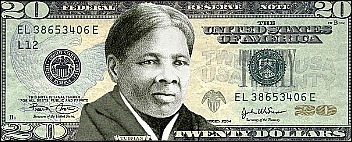 during the Civil War by serving as a cook, laundress, nurse and spy. She helped scores of slaves escape to freedom via the network of "safe houses" known as the Underground Railroad, and as a spy, she ensured the success of a 1863 Union raid in South Carolina that resulted in the freeing of over 750 slaves. during the Civil War by serving as a cook, laundress, nurse and spy. She helped scores of slaves escape to freedom via the network of "safe houses" known as the Underground Railroad, and as a spy, she ensured the success of a 1863 Union raid in South Carolina that resulted in the freeing of over 750 slaves.
The activist group "Woman on 20s" campaigned to have a woman's image on U.S. currency by 2020 and sponsored an online national poll asking Americans to vote on a candidate from a list of 15 influential women in American history. Harriet Tubman beat out second place finisher and former first lady Eleanor Roosevelt by 7000+ votes, thus making Tubman a very viable candidate for the honor.
But why pick on "Old Hickory," the seventh President of the United States, founder and leader of the modern Democratic Party, champion of the "common man," and the first American president to rise from humble origins and not from Virginia or Massachusetts aristocracy? Perhaps a quick look at Jackson's presidency is in order.
 |
|  | The hero of the Battle of New Orleans, 1814 |
Andrew Jackson was born poor in South Carolina. He served in the Revolutionary War, was a member of Congress, a U.S. Senator and a judge. He became a national hero by defeating a large British force at New Orleans in 1814 -- even though the War of 1812 had ended a few weeks earlier!
He also won fame when he led a force against the Seminoles in Spanish-held Florida and, with the approval of President Monroe, negotiated a questionable "forced land sale," which added Florida to the United States. This was "Manifest Destiny" at its most dubious, especially if you were a Spaniard. Manifest Destiny also came into play later in Jackson's presidency, as we shall see.
In the tradition of George Washington, military heroes made for popular presidential candidates and Jackson ran for president in 1824. He won the popular vote but the election was thrown into the House of Representatives where a 'back-room deal' was made - Henry Clay, one of the candidates, threw his support and thus his electoral votes to John Quincy Adams, who won the election. When Adams appointed Clay as Secretary of State, the Jackson supporters immediately hurled charges of a "Corrupt Bargain" and a rigged election.
Jackson ran again, in 1828; this time he won. The election campaign was vicious. Just to put our current election spectacle into perspective, Jackson's mother was called a "prostitute" and his wife Rachel was called an "adulteress" (she was technically not yet divorced when she married Jackson) and was shunned by Washington society, much to the dismay of Jackson. When Rachel died shortly after the election, Jackson blamed her death on the merciless gossip leveled at her by Jackson's political enemies.
Jackson's presidency ushered in the "Age of Jacksonian Democracy." He was considered the champion of the "common man" -- as long as the common man didn't include slaves, Native Americans or women -- and the founder of the modern day Democratic Party. He supported the elimination of property ownership as a qualification for voting, direct election of judges, and participatory democracy via state and county nominating conventions for elective office. He rewarded his supporters with government jobs, a practice known as the "spoils system," which, to a greater or lesser extent is still in vogue today.
Jackson believed that the federal government should be somewhat limited vis-s-vis that of the states. Yet in contradictory fashion, he was not afraid to use his executive authority if he felt the national interest was threatened. He was steadfast in preserving the structure of the government that the Founding Fathers had created, as well as the idea that the government was the servant of the people, defined, of course, as while males only!
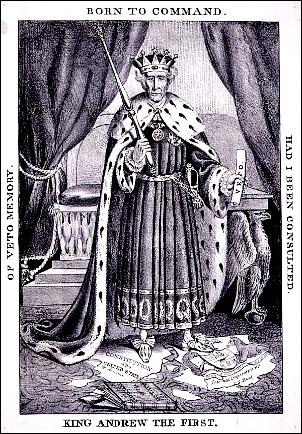 He was an economic nationalist, supporting high tariffs to promote westward expansion, internal improvements and the development of American industry -- all to the dismay of the South which depended on foreign trade. In 1832, Jackson signed into law a new lower tariff designed to appease southern opposition. South Carolina -- led by Jackson's Vice President John C. Calhoun -- threatened to "nullify" the tariff and secede from the Union. In typical fashion, Jackson threatened to call out the troops and "hang John C. Calhoun from the highest tree." Calm prevailed and the Civil War was avoided for another 30 years. Jackson's support for the common man can be seen in his war on the National Bank. Jackson believed that power was concentrated in the hands of the "monied class," i.e, eastern credit holders, bankers and industrialists as well Southern plantation owners. He felt that the bank did not serve the interests of the average citizen, making the same arguments we hear echoed by Bernie Sanders today. Since the National Bank was chartered by Congress, Jackson vetoed a "recharter bill" in 1832 and used further subterfuge to destroy the National Bank. He withdrew all federal monies and distributed them to his favored state banks. With no federal deposits and no re-charter authorization the Second Bank of the U.S. expired in 1836. The United States functioned without a Central Bank until 1913. Jackson's actions earned him the title of King Andrew and he was accused of being a dictator. Sound familiar? |
| |
More than 5000 members of the Cherokee Nation died when they were removed from their land in the Deep South and forced to walk more than 1000 miles to a new homeland in Oklahoma.
|
Perhaps the event that most defines Jackson's legacy - at least with modern activist groups -- is his treatment of the Cherokee Nation. During his first term as president, gold was discovered in the deep South and in Florida where the Cherokee Nation resided. The Cherokee tribes had gone to great lengths to be assimilated into American life -- adopting American values, clothing and similar institutions of local government. Yet, as was often the case throughout American history, white encroachment on Native lands won over fairness and acceptance. The Indian Removal Bill of 1830 called for the resettlement of the Cherokee Nation to the Oklahoma Territory. The Native Americans appealed the bill to the U.S. Supreme Court and won. Jackson ignored the decision and ordered their removal. As Manifest Destiny took hold of the American psyche, 15,000 Native Americans were uprooted and forced to march approximately 1000 miles to their new homeland. Over 5000 died from starvation and the cold in what came to be called the "Trail of Tears." No American president, before or since, ever refused to comply with a Supreme Court decision. So here is the real rub against "Old Hickory." He ordered a willful and heartless act, genocidal in nature, against Native Americans who had tried to live peacefully within the boundaries of the then construed United States. By contemporary moral standards, it's easy to condemn Jackson for his reprehensible treatment of Native Americans. Was he a hero or a villain? Is the removal of his image from the $20 bill warranted? He was a product of his time in style, values, and temperament and must be understood in that context. When he was on his deathbed, someone asked if Jackson will go to heaven. One of the attending Black slaves replied: "If General Jackson wants to go to heaven, who's going to stop him?" Sources:
|
At the Fair in
Provincetown
by Sheila Handler
|
They come to the fair in Provincetown
from everywhere in the wide world --
from Montreal and London, from Greece
and the Azores, from the Ukraine and
Australia, from the south of Africa
and the northernmost part of Finland.
They meet at the Unitarian
Church, on the small patched lawn in front,
where artisans and a local poet
show their secrets of creation
to the locals and tourists alike.
Energy rises from tented booths
and the cacophony of voices as
multi languages merge in symphonies,
a symbiotic concordance of
art, understanding and the joy of
this swirling, celebrating brotherhood.
|
TRAVEL
Cruising: Notes & Snapshots
by Liz Rogers
|
The Royal Princess carried us from Ft. Lauderdale to Athens on a month-long cruise last spring. During the initial week at sea, we relaxed and enjoyed the ship's amenities. Once again, we were awed and humbled by the vastness and beauty of the ocean.
 |
|  | Who needs snow ? |
PORT: Funchal, Madiera, Portugal
This lovely island off the coast of Africa, lies about 540 miles southwest of Lisbon. Its dramatic mountain valleys and sea cliffs are complemented by amazing man-made terraces.
The highlight of our day was a snowless sled ride. The 'sled' is a wicker basket chair on runners, guided by two men dressed in traditional white flannels and straw hats who run alongside and guide it safely down the steep narrow streets. The practice started in 1850 as a means of downhill transportation.
PORT: Lisbon, Portugal
The last time we visited Lisbon was with my parents. My grandfather was from the Azores and it was my father's dream to visit Portugal. Keith and I planned the trip, which was my parents' only trip to Europe, and the four of us had a wonderful time. Sadly, my dad died a few years ago and how could I visit Lisbon and not have him in my thoughts?
PORT: Gibraltar
 |
|  | Barbary pirates? |
Gibraltar is home to the famous (or infamous) Barbary apes, which are really Macaques monkeys from Africa. These clever creatures are quick to steal a sandwich, purse, sunglasses or a chocolate bar; maybe they should be known as Barbary Pirates instead of apes.
Local folklore states that the British will retain Gibraltar as long as the Barbary apes remain. With this in mind, when the apes' numbers decreased during World War II, Winston Churchill had ape reinforcements brought in from North Africa to make sure their numbers remained high.
|
|  | |
The Alhambra
|  |
PORT: Malaga, Spain
The highlight of our day was a visit to the magnificent Alhambra complex in Granada. The Alhambra is a 13th century fortress/palace with original Islamic and later Christian architectural elements and is famed for its superb mosaics, columns, courtyards and magnificent gardens. In 1492, the site became the Royal Court of Ferdinand and Isabella, where Christopher Columbus received their royal endorsement of his expedition.
PORT: Cartagena, Spain
This lovely, very walkable city has a rich heritage and was a wonderful place to explore. Its strategic port served as Hannibal's Spanish headquarters during the Second Punic War with Rome and was a major trading post between the Romans and the Moors. Today it is Spain's principle naval establishment.
PORT: Mallorca, Spain
The island of Mallorca is the place to buy its famous (manufactured) pearls. The hunt was easy since just about every store displayed them in the window. Who could resist them?
Not I; Keith bought me a lovely necklace that will remind me of this trip.
|
|  | |
Gaudi's dragon
|  |
PORT: Barcelona, Spain
Friends had told us of this city's beauty, and they were right. We had a rainy day but between rain drops we enjoyed the works of Antoni Gaudi, including the awe-inspiring (and unfinished) La Sagrada Familia church and the eerily whimsical Parc Guell.
PORT: Marseille, France
At our only stop in France, we explored the cobbled streets of two lovely hill villages -- Gordes and Roussillon. We wondered what the interiors of these pretty homes were like but were not invited in for carpaccio or wine, so we'll continue to wonder.
 |
|  |
What's this all about?
|
PORT: Genoa, Italy
The seaside villages of Portofino and Santa Margheirta awaited our visit. Both towns have beautiful marinas, homes, churches and wonderful streets to explore. In Portofino, a sculpture display in the pier area featured a rhinoceros in a sling. Not sure what it was all about, but couldn't pass up a "Kodak moment."
PORT: Cinque Terre, Italy
We discovered that these five colorful towns are very hilly! The last stop of our day was the famous leaning tower of Pisa. We joined all the other tourists trying to get the perfect photo of pushing the tower upright. It was good fun but we couldn't help but wonder why it is still standing.
|
|  | |
Visit the Cinque Terre for a good workout.
|  |
PORT: Rome, Italy
We had visited Rome for several days on a previous trip and decided to pass up another visit to this wonderful but exhausting city. Our previous few days had been long intense touring days and we thought maybe something relaxing, like wine tasting, would be a good use of our time.
PORT: Naples, Italy
We had seen the Amalfi coast on an earlier trip in 2001, shortly after the twin towers fell, and were more concerned about family and friends than sightseeing. So it was great to have a second opportunity to visit the charming towns of that dramatic coast.
|
|  | |
The Palace at Knossos
|  |
PORT: Heraklion, Crete, Greece
Our tour started with a scenic coastal drive to several port towns. The highlight of our day was a visit to the city of Knossos, which was founded around 7000 BCE and is regarded as the oldest city in Europe. Its fabled Palace, begun around 2000 BCE, was the center of political and ceremonial life during the Minoan Kingdom. It was also the home of the legendary Minotaur with his bull head and giant human body, who lurked in the ancient Labyrinth. We were lucky he wasn't home; perhaps he was out getting his horns polished.
PORT: Kusadasi (Ephesus), Turkey
I was apprehensive about going to Turkey and we even discussed canceling this part of our cruise, but I am so happy that we 'stayed with the program.' It is hard to describe what once was the incredible city of Ephesus, or the spiritual sites of Saint John's and the Virgin Mary's shrines.
 |
|  |
The Blue Mosque
|
PORT: Istanbul, Turkey
What can I say? It is magnificent!The Blue Mosque, Hagia Sophia, Topkapi Palace and the crazy Grand Bazaar have to be experienced. We found the Turkish people very friendly and felt safe in both ports.
PORT: Mykonos, Greece
We explored the downtown of this island of the rich and famous, and then took a ferry to the island of Delos to see the famous ruins where the god Apollo was born. The island is a national museum and only archeologists and museum guards are permitted to live there -- 14 people in total. Hope they like each other.
|
|  | |
Delos: Population 14
|  |
On our final day of the trip we took a half day tour of Athens and were then dropped off at the airport. We had a wonderful trip but as Dorothy said, "There's no place like home."
|
New in the Neighborhood
Spotlight Interviews & Pictures by Andy Jablon
|
Roberta & Arnie Lasker
23 Grey Hawk Drive
Moved in: April 2016
Originally from: Both from Newton, MA
How They Met: At a college party in Boston
Previous Residences: Waltham, Middleton CT and Framingham
What Kind of Work Did You Do:
Roberta: Elementary school teacher and administrator in Natick dental office.
Arnie: President of former computer company "Leading Edge." Presently works in sales in high tech industry.
Why Southport: Friends from Falmouth brought us here and we loved the concept. Looked for something similar in Framingham area but couldn't find anything so we moved here.
Like Best about Southport: Variety of activities
Like Least: So far, nothing
Want to Get Involved with: Roberta: Exercise programs, mah jong, women's coffee, bocce. Would love to see a lifelong learning program brought to Southport.
Arnie: Golf, exercise facilities. Would like to see softball happening here.
Jane Ketchen 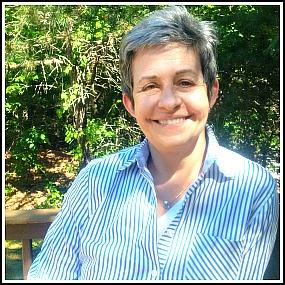
15 Rolling Green Lane
Moved in: April 2016
Originally from: Andover, MA
Previous Residences: Framingham, MA
What Kind of Work Did You Do: Dental hygienist, aesthetician, medical sales for IT services
Why Southport: Wanted a community with activities
Like Best about Southport: The people. Everyone here is friendly and welcoming.
Like Least: Would like to see recycling
Want to Get Involved with: Book club, swimming, exercising. I am an avid cook. Would like to see cooking classes, workshops etc. here.
|
|
Non Compos Mendes
by Bob Mendes
|
"Take wisdom wherever you can find it" is good advice to live your life by
(by which to live your life, if you're a grammatical purist). This month's wisdom was forwarded to me by my friend Bob LaRocca:
- Artificial intelligence is no match for natural stupidity.
- Don't tell anyone your problems because 20 percent don't care and the other 80 percent are glad you have them.
- Graciousness is the art of making guests feel at home when you wish they were.
- Ever stop to think -- then forget to start again?
- I hate it when people use big words just to make themselves sound perspicacious.
- It's fitting that only one company makes the game Monopoly
- My friend got eight out of 10 on his driver's test. The other two managed to jump out of the way in time.
The Patriots may or may not have the talent to go to the Super Bowl this season, but what they do have is a player named Terrance Knighton, the man who has possibly the greatest nickname in the history of sports: "Pot Roast."
If anyone is interested in how I'm going to get rich, rich, rich, here it is: I'm going to design and spend the rest of this year selling bumper stickers that say:
"VOTE NO ON PRESIDENT."
Thanks to Bette Mendes for this one: While walking the perimeter road of Southport she noticed plastic bags, paper cups and other trash along the way. When she caught up to the garbage truck, she realized why. It's an open-on-two-sides truck and when a trash can is emptied from one side, some of the garbage inevitably finds its way out of the truck from the opposite side. Bette calls it a new version of "Garbage in, garbage out." She has already reported it at a Board of Governors meeting.
Here's some good advice:
- It's better for you to wear out rather than to rust out.
- Be your spouse's best friend.
- Remember people's names.
- Park in the back of the lot at Stop 'n Shop. The walk is good for you.
- Buy locally, even if it costs a little more.
- Learn to say "No."
- A successful marriage depends on two things: finding the right person and being the right person.
- When someone say, "To tell you the truth," they're probably not.
- Wear expensive clothes, but buy them on sale.
This is just a suspicion, I have no firm facts, but I suspect that pens are having sex in my house, thereby multiplying. How else to explain that at last count there were more than 70 ballpoint pens in Chez Mendes. We don't buy them, we don't manufacture them, we don't steal them. They just are. They say things like W.T. Phelan Insurance Group, We Gotcha Eyes Ocular Group, Avalon, Wareham Pediatrics, KPCC-FM, Girly-girl Parts. I'm thinking this calls for an investigation.
From my favorite source, Anything for a Vote:
The campaign of 1800 made today's political bickering seem almost tame) Federalists attacked Thomas Jefferson in any way they could. They called him a mean-spirited low life fellow, the son of a half breed Indian squaw sired by a mulatto father, a violator of female chastity, a burner of homes, a man who will have your children writhing on the pike.
Jefferson's people, in turn, claimed that John Adams was marrying one of his sons to a daughter of King George of England to start an American royal dynasty and reunite England with America. The more things change, the more they stay the same: After the election, one federalist decided his party's defeat could be blamed entirely on the media ,which clearly favored the Republican Party.
FINAL THOUGHT Many years ago I went for a job interview. On the wall of the President's office was a plaque that read,
Two Things I Never Want to Hear:
This is how we've always done it.
We've never done it this way before.
I've always tried to remember that.
|
|
Out & About at Southport
| |
"Another Fine Day" Photo: Andy Jablon
|
| |
Too close to call? Photo: George Gaudin
|
|
|
| |
The Longest Day. Photo: Elinor Saltz
|
|
|
| |
Ready to receive serve. Photo: Elinor Saltz
|
|
|
| |
Ladies 9-Hole League. Photo: Ann Cogan
|
|
|
| |
The Danforth Management Team. Photo: David Kapp
|
|
| |
"Friends & Neighbors" Photo: David Kapp
|
"Four Dubious Characters" Photo: Paul Butters
|
| |
Save energy; scooter. Photo: Andy Jablon
|
|
|
| | Cockamamie signs. Photo: Andy Jablon |
|
|
| |
Quilters display their 'Nestled Baskets' projects. Photo: Unknown
|
|
| |
Too happy to be called "poker" faces. Photo: Ernie Ruber
|
|
|
Contributors
to the July 2016 Edition of
Southport Village Voices
|

Lydia Biersteker
grew up in Somerville, MA. She met her husband Dale on the beach at Falmouth Heights in 1969, while he was stationed at Fort Devens. After Dale retired in 2005 from his executive position with the USPS, they moved to Vero Beach, FL but decided that they preferred New England. They moved to Southport in 2011. Dale plays golf, and Lydia likes to garden, walk, write poetry and short prose, explore genealogy, and go to lunch with friends. Together, they enjoy dining, exploring wineries and brew pubs, walking the trails of Cape Cod, traveling and playing with their grandkids, who live on the North Shore.
 Lynn Fulton
has lived in 32 different places before arriving in the summer of 2015 at Southport, most in New England, but there was also Tacoma and Quebec. She's been a waitress, hostess, bartender, ski lodge manager and chef, office worker, educator - high school, university and consultant, amateur architect and artist. Most of her pastimes have involved going from here to there - white water canoeing, kayaking, bicycling, hiking, climbing, backpacking, skiing and traveling. She's most proud of her 800-mile bicycle tour of the UK and the cross-country ski up and down Mt. Washington. She begins her seventh decade, having had both knees replaced, thrilled with the pool, hot tub, water aerobics and chair yoga at Southport, delighted with the social life and fascinating people.
Sheila Handler 
is a retired high school teacher of advanced placement Spanish literature. She was also a bilingual puppeteer and artist-in-residence for the New Jersey State Council on the Arts, helping to integrate schools in the 1970s. Sheila is the author of four collections of poetry: Poems of a Haunted Child, A Poet's Journey Towards September 11, Falling into the Sky, and Poems from Earth and Wind. She and her husband Les, married 55 years, moved to Mashpee from Provincetown last year. They are the parents of two children and have four grandchildren. Sheila hopes that the newly formed Southport Poets and Writers Group will attract many interested participants.
Andy Jablon 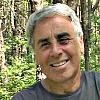
owns a television production company in Watertown that provides crews to shoot stories in New England for the major TV networks. As producer, he interviews all sorts of interesting people on a regular basis. His wife Tracy Tebbutt works at a cancer pharmaceutical company in Cambridge. Since July 2014, they split their time between Southport and Boston, depending on work schedules. Both are enthusiastic cyclists, riding along the Charles River to work in almost all kinds of weather. At Southport, they walk bike, play tennis and soak in the hot tub.
 David Kapp David Kappwith his wife Billie, moved from Connecticut to Southport in 2009. David retired from a career as a university library administrator, after working in the libraries at Brandeis, Harvard and the University of Connecticut. He was a building consultant for the planning of a number of major university libraries and was, for many years the editor of Connecticut Libraries. Billie enjoyed a career as an educator and social sciences consultant. The Kapps are frequent visitors to Hawaii where their son and other family members live. Their daughter and grandson live in Mashpee.
Tom Kelleher 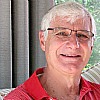
grew up in Lowell, MA and stayed in that area after marrying Kathryn, his "college sweetheart" and wife of 43 years. After raising a family of five children and somehow paying for five private college educations, Tom and Kathryn retired to Southport in August 2014. Tom pursued a career in public and private education that spanned 42 years. He was a teacher and administrator at Dracut High School and later principal at Nashua Catholic Regional Junior High in Nashua, NH. Upon retirement and prior to moving to Southport, Tom took on a "fun" job as a part-time museum teacher and history tour guide at Lowell National Historical Park. In addition to history, Tom's other passion is singing and playing guitar in various "open mic" and song circle venues in the Falmouth/Sandwich area. Tom also performs for patients at the Tradewinds Adult Day Care Center in Sandwich.
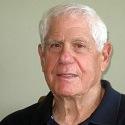 Bob Mendes Bob Mendesbegan his career as an advertising copywriter at Doyle Dane Bernbach in NYC before becoming senior vice president of marketing for a west coast department store chain. He left that position to start Pacific Sports, a sports and general marketing agency. There he developed "The Reading Team," a children's literacy program sponsored by the NFL and the American Library Association, using NFL players as literacy role models. Bob is the author of "A Twentieth Century Odyssey, the Bob Mathias Story." After retiring, he served as executive director of the Glendora, CA Chamber of Commerce. When grandson Adam was born, Bob and Bette moved to Cape Cod. He's had a number of part-time jobs, has written two more books, and volunteers. Bette serves on the Board of Governors and volunteers at the Falmouth Jewish Congregation. Their son Steve, a pediatrician, lives in Marion with his wife Sarah and their children; a second son, Jeff, practices law in Indianapolis.
 Liz Rogers Liz Rogers
and her husband Keith moved to Southport from Rhode Island in 2012. Liz retired from a career as a professional conservationist with the USDA's Natural Resources Conservation Service. Liz and Keith have a son living in RI, whose children, Cody 13, Libby 8, and Abby 7, love to swim in the Village Center's indoor pool. Liz and Keith enjoy their home on Chadwick Court and Cape Cod. Time with friends is spent golfing, biking, kayaking, attending local theater, etc. Both are active on several Southport committees.
Special Thanks To
Pam Britnell for her interview and pictures,
the many photographers who sent pictures,
and to my proofreader Billie Kapp
|
|
|
|
|
|
|
|